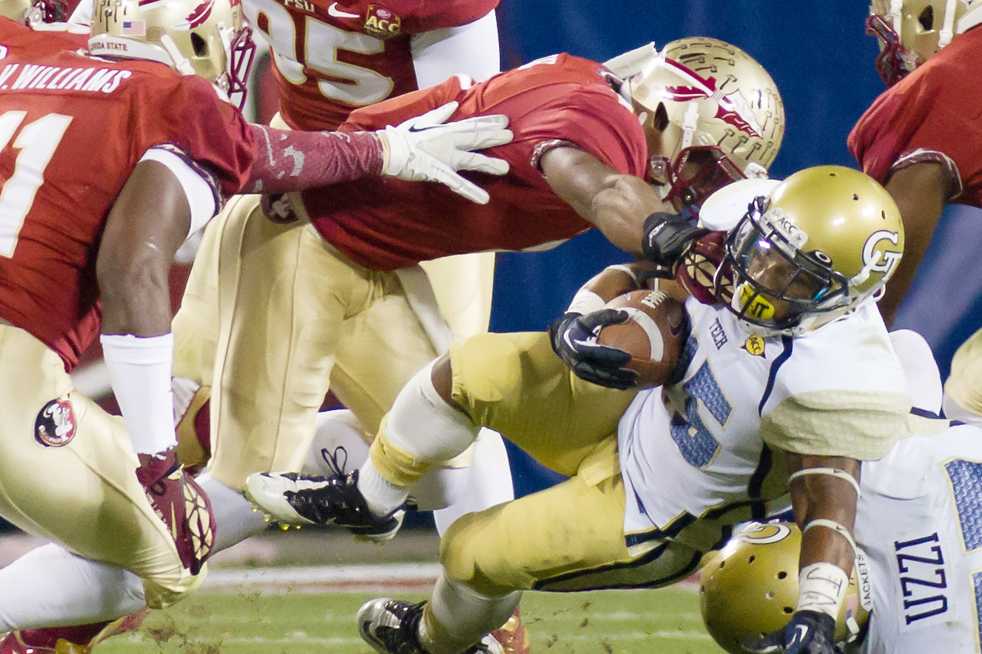My friends and I got into an argument the other day. As huge college football fans, we were planted right next to the television when the first BCS standings of the season were released. Like many sports fans, we all had a lot to say when the Florida State Seminoles —not Oregon—were revealed to have earned the number two ranking.
The night before, we, along with the rest of football America, watched Florida State give the Clemson Tigers a thorough beat down in a matchup that everyone had been calling “Game of the Year.” Freshman phenom Jameis Winston cemented himself as one of the Heisman frontrunners and the ‘Noles defense made Tajh Boyd look like Josh Freeman looked the other night. Okay, maybe not that bad. The point is, nobody could have predicted Florida State would curb stomp the number three overall team, the way that they did, yet they did.
A few hours later Oregon completed an almost equally dominating win, 62-38 over Washington State. So we are not exactly talking about a national powerhouse with the Cougars, but Oregon did their job: win.
Flash forward to Sunday when the rankings came out. Either scenario, with Oregon staying at number two, or getting jumped, seemed reasonable considering the above. Debate ensued nonetheless the next day. We were throwing out all kinds of reasons why we thought we were correct: Florida State has the most impressive win this year, Oregon plays in a tougher conference, Oregon did nothing to deserve being jumped, before landing on a very intriguing question that sparked the most discussion. Which team would better challenge number one Alabama if they were to meet in the title game?
I argued for Oregon, because Alabama has struggled with teams that employ a mobile quarterback in the past. In the past four years, Alabama has lost just four games. Three years ago, they lost to bitter rival Auburn who of course were led by the ever scrambling, Cam Newton. They also lost their only game last year to Texas A&M and Johnny Manziel, a quarterback who has already set quarterback rushing records in one season, and were tested to the final whistle this season against the Aggies. The evidence was not super strong, but it was the best argument I felt there was between two teams that on paper, are just as good as Alabama if not better.
Some of my friends argued that you cannot look at past seasons to support something in the present. I countered that many of the players from those teams are still on the Alabama roster today, as are as coaches who many have specific tendencies that could hinder teams against certain styles.
This continued on and on before we decided to just agree to disagree. In doing so, I realized something much more significant. Ranking teams is impossible. It is absolutely, 100% impossible for college football rankings to be an accurate process. There are simply too many variables. Consider injuries, strength of schedule, margin of victory, team tendencies, momentum, the brevity of a college football season and intangibles just for starters. How do we know who is best? The answer is we really do not.
In sports, I would like to think we strive to be as fair as possible. With that in mind, it finally made sense to me why playoff systems work in sports.
They are a fair method for deciding a champion while still keeping the drama in play that sports fans live for. They aren’t a perfect system, but there is no such thing. They work, and they work especially well in college football where teams play entirely different schedules. So as we draw closer and closer to the end of the BCS era, even though I am secretly hoping for some BCS drama this year, I know that when it comes to the great sport of college football, it is about to get even better.
